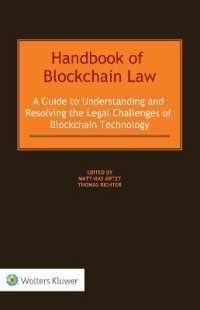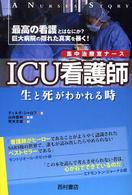Full Description
This work uses autoethnography as an enterprise to deconstruct barriers that support the invisibility of diverse epistemologies. The reality of invisibility and silence has plagued "unvalued others" in their attempt to make known the cultural significance found in the planning and execution of research. As a result, this book purposes to support the visibility and voice of marginalized scholars who conduct autoethnographic research from a racial, gendered, and critical theoretical framework. This work further supports authentic inquiry as it examines and reexamines culturally diverse epistemologies as a viable and valuable framework for conducting autoethnographic research. Specifically, this work highlights racialized epistemologies as an inescapable factor in auotethnographic research in the context of schools.
Contents
Part I: Illuminating Racialized Inquiry Through Autoethnography.
Introduction.
Chapter 1. Common Threads: Culturalized Patterns and Conceptual Understandings of Race, Research, and the Politics of Schooling, Stephen D. Hancock and Ayana Allen.
Chapter 2. Your Inquiry Is Not Like Mine: Structuring a Critical Constructivist Approach to Autoethnographic Inquiry, Stephen D. Hancock.
Chapter 3. Going Native/Being Native: The Promise of Critical Co-Constructed Autoethnography for Checking Race, Class, and Gender In/Out of the Field, Sherick Hughes and Kate Willink.
Chapter 4. Autoethnography as Counternarrative: Confronting Myths in the Academy—An African American Female Perspective, Lisa R. Merriweather.
Part II: Voicing of the Silenced Through Autoethnography.
Chapter 5. From Being Considered At-Risk to Becoming Resilient: An Autoethnography of an Immigrant Child Finding Her Voice in Becoming a U.S. Citizen, Rosalinda Mercado-Garza.
Chapter 6. Race, Gender, and Single Parenting: Dismantling the Invisible Myth Around Intellectual Black Female Scholars, Andrea L. Tyler and Lameesa Muhammad.
Chapter 7. Fragmented but Unbroken: Forming a Black White Biracial Identity in the South, Anthony Ash.
Part III: Investigating Identities in Schools Through Autoethnographic Lenses.
Chapter 8. Black-Self/White-Context: An Autoethnography of Hurt, Hope, and Heroism in Predominantly White Schools, Ayana Allen.
Chapter 9. Black Women Professors' Evolving Teacher Identities: Reconciling Past, Present, and Future, Tambra O. Jackson and Michelle L. Bryan.
Chapter 10. Stimulating Conversions: Critical Teaching, Changing Paradigms, and the Politics of Schooling in an Urban Elementary Context, Stephen D. Hancock.
Chapter 11. The Implications of Autoethnographic Research for Access to Equity and Achievement, Ayana Allen, Stephen D. Hancock, and Chance W. Lewis.
Author Biographies.








